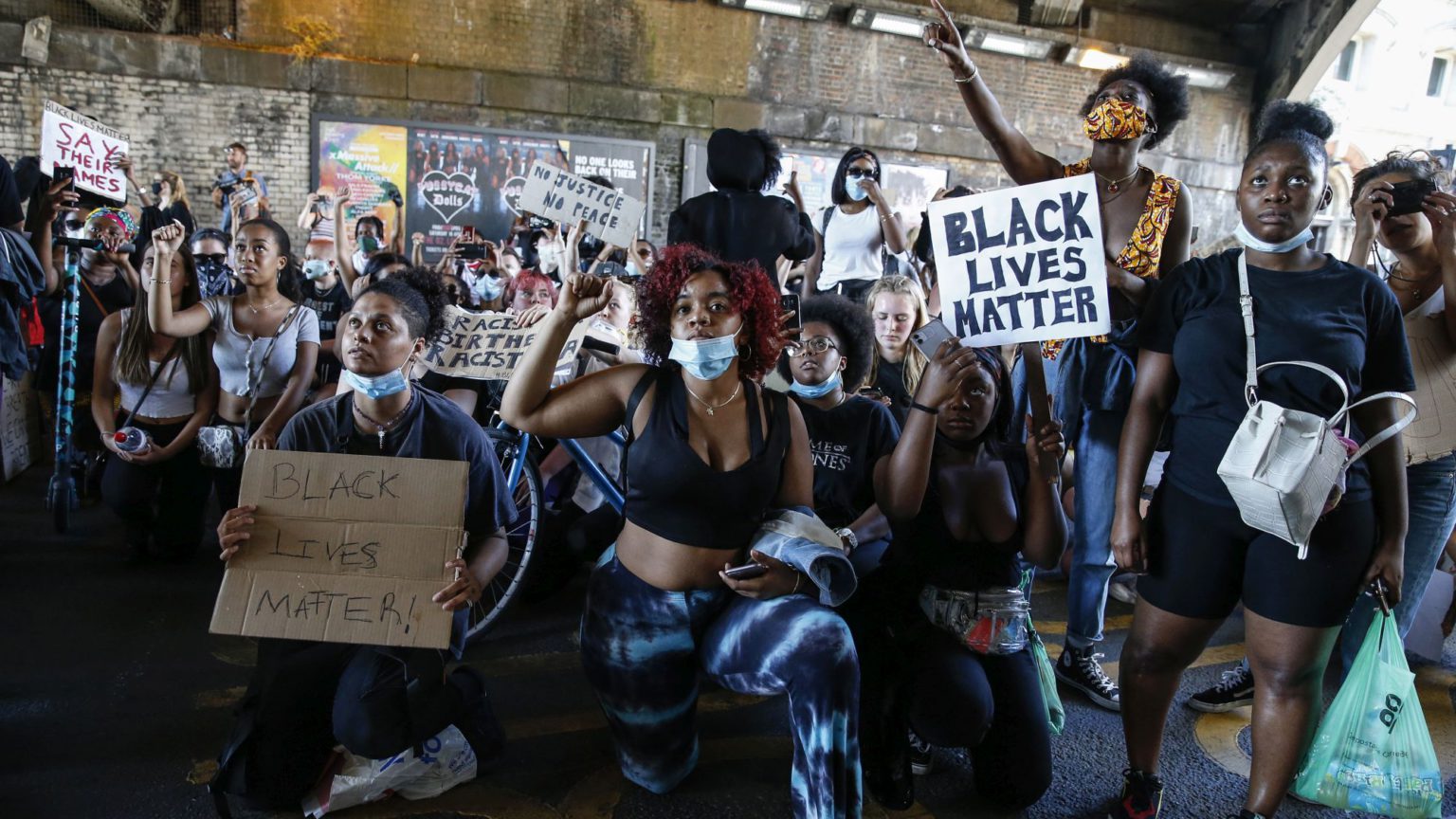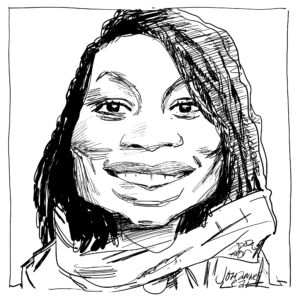2020: the year racial identity took over
A backward and divisive racial ideology has filled the vacuum left by disillusionment in the West.

Want to read spiked ad-free? Become a spiked supporter.
2020 was the year that a divisive form of racial identity politics, embodied in the Black Lives Matter (BLM) movement, was accelerated and institutionalised.
BLM brought with it a politics of victimhood, a view of races as rigidly defined and adversarial, and a view of the past as something to be sanitised and fought against. The cowardice and capitulation of our institutions to censorious mob pressure made 2020 the year we nearly lost our collective grip on reality.
The intensity of lockdowns, under which billions around the world were confined to their houses, provided the pressure-cooker conditions for BLM’s volcanic eruption on to the global stage. The case of George Floyd in the USA appears, in this sense, merely an opportunistic pretext for an outpouring of self-righteous rage.
What was most striking was the response of the political, cultural and economic elites. BLM, a movement based on fundamentally flawed assumptions and flawed conclusions, was able to demand, and to some extent attain, significant changes to society – the removal of statues, the explosion of corporate diversity programmes, the encroachment of the ‘decolonise the curriculum’ movement – with little sustained pushback from our institutions. You only need to look to history to find several occasions when bad ideas were legitimised as the one and only ‘truth’. But how did today’s bad ideas take over?
A widespread disillusionment with ‘Western values’ stemmed in large part from the end of the Cold War. In place of the old values — at first in the academy, and then in the structures of real political power — a great deal of credence has been given to the once marginal bunkum of postmodernism. At the same time, the therapeutic turn has elevated claims to victimhood over rational debate. Some now even question the biological basis of human beings. Our modern politics is defined by a lack of intellectual principle and political spine.
This year’s self-flagellation over Britain’s colonial and ‘racist’ past marked a further spiral into narcissistic self-indulgence. Even in a society like that of the UK, where racial equality is near achieved and so-called structural racism has been almost totally eradicated, those who we thought we were able to rely on to defend this record find themselves either unwilling or unable to do so.
Many are totally unable to ‘hold the line’, particularly by rejecting the claims of BLM that Britain is a racist society. There are now very few people who wish to defend the gains of history, are proud of its achievements and are not willing to surrender them to a handful of middle-class disaffected nihilists. In short, the nation is being run by a Conservative government which shows little desire or knowledge of how to conserve anything in any meaningful sense. And this vacuum at the core of British politics is being filled by those hellbent on destruction and little else. When faced with a movement filled with moral certainty, indignation and claims of moral superiority like BLM, the pressure is immense, especially if you do not know what you stand for.
Of course, it is now obvious more than ever that the right, and those on the left who see themselves as heirs to the Enlightenment, lost the culture wars a long time ago. Many of the same arguments have already been had (see Kenan Malik’s Meaning of Race, for instance). What is perhaps unique about 2020 is that many of those in positions of power and responsibility capitulated to such an extent that they even seemed to act as the avant-garde of the BLM movement. 2020 will be remembered as the year when capitalists, bureaucrats, politicians and technocrats were able to reinvent themselves as the protectors of minorities against a supposedly racist, uneducated majority.
Their ‘anti-racist’ racial thinking has reframed the political struggles of old. The struggle between ‘left’ and ‘right’ was a political contestation about what sort of society we wanted to live in. The new political contestation is about what we are as human beings. We are not just struggling against the politics of identity — we are fighting an inherently different way of viewing human beings. Individuals are no longer seen as sovereign beings with agency; instead, we are either victims in need of protection or we need our ‘unconscious biases’ to be corrected to protect others. This draws a fundamentally new and dangerous set of battle lines for the future.
It’s important that we ask what are the grains of truth in Black Lives Matter, which resonate not only with our institutions and politicians, but also with many members of the public. We also need to ask if these grains of truth are sufficiently powerful to make BLM a permanent feature of our political settlement. Can we all agree that while slavery and many aspects of colonialism should be condemned, they should also be understood in a historical perspective that locates them correctly in the past and not in the present? Can we all agree that racism is bad, but that disingenuous anti-racism is divisive, dangerous and regressive? Can we discuss the history of race and racism calmly and rationally? Can we distinguish what in our current societies still needs to be addressed, and what progress can be celebrated?
To look on the positive side of 2020, we can see that a lot which needs to be done is already in motion. This year, projects like the Free Speech Union, Don’t Divide Us and the Equiano Project were set up. There have recently been some important victories for free speech in universities. And this month, the government decided to drop ‘unconscious bias training’ from the civil service.
All of this shows that resistance is beginning to stir. To paraphrase Newton’s third law of motion ‘For every action, there is an equal and opposite reaction’. Perhaps Winston Churchill’s reaction to seeing a devastated Coventry in late 1940 is more apt. He said of the Germans, using the words of Hosea 8.7: ‘They have sown the wind, they shall reap the whirlwind.’ BLM has certainly sown the wind.
Inaya Folarin Iman is a spiked columnist, and founder and director of The Equiano Project.
Picture by: Getty.
Who funds spiked? You do
We are funded by you. And in this era of cancel culture and advertiser boycotts, we rely on your donations more than ever. Seventy per cent of our revenue comes from our readers’ donations – the vast majority giving just £5 per month. If you make a regular donation – of £5 a month or £50 a year – you can become a and enjoy:
–Ad-free reading
–Exclusive events
–Access to our comments section
It’s the best way to keep spiked going – and growing. Thank you!










Comments
Want to join the conversation?
Only spiked supporters and patrons, who donate regularly to us, can comment on our articles.